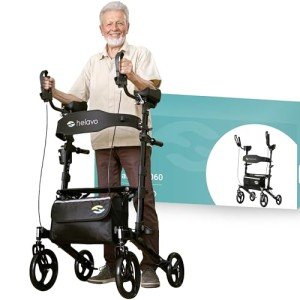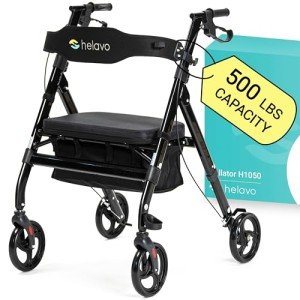What's The Point Of Nobody Caring About Senior Walker
페이지 정보
작성자 Jannie Canipe 작성일25-11-05 03:25 조회2회본문
A Comprehensive Guide to Medical Walkers: Enhancing Mobility and Independence
In the world of health care, mobility plays a crucial function in rehab and total wellness, especially for seniors and those recovering from injuries. Amongst the myriad of mobility help readily available today, medical walkers stand out as versatile tools that facilitate movement and enhance self-reliance. This post will look into the types, benefits, factors to consider, and FAQs regarding medical walkers.
What is a Medical Walker?
A medical walker, typically described as a walking frame, is an encouraging device developed to assist people with mobility challenges walk with greater stability and ease. Walkers provide a wider base of support compared to canes and crutches, making them perfect for those with balance problems or minimal strength.
Types of Medical Walkers
| Type | Description | Features |
|---|---|---|
| Requirement Walker | A fundamental four-legged frame without wheels, utilized primarily for stability. | Lightweight, durable, adjustable height, suitable for indoor and outdoor usage. |
| Wheeled Walker (Top-Rated Rollator) | A walker with wheels on the front legs, permitting for simpler motion. | Equipped with hand brakes, a Padded Seat Rollator Walker for resting, and storage choices. |
| Hemi Walker | A walker designed for individuals who can utilize one arm and need support. | Lightweight and compact, features a curved manage for much easier gripping. |
| Bariatric Walker | Created for larger individuals, using increased weight capacity and stability. | Boosted sturdiness, wider frame, and supportive features for heavier users. |
| Knee Walker | An unique choice for those with leg injuries, permitting them to rest the knee. | A platform to support the injured leg, guiding capabilities, and brakes. |
Benefits of Using a Medical Walker
- Improved Stability: Walkers provide additional points of contact with the ground, resulting in a more stable walking experience.
- Increased Independence: Users can navigate their environment without needing assistance, improving self-confidence and self-reliance.
- Enhanced Safety: The risk of falls is substantially decreased, as walkers use support to those with balance concerns.
- Flexible Usage: Many walkers are created for both indoor and outdoor use, adapting to various surfaces.
- Assistance throughout Rehabilitation: Medical walkers are indispensable throughout recovery from surgical treatments, injuries, or health problems.
Considerations When Choosing a Medical Walker
When selecting a medical walker, various factors should be remembered:

| Consideration | Description |
|---|---|
| User's Condition | Evaluate the person's strength, coordination, and particular requirements. |
| Devices Weight | Make sure the walker is lightweight enough for easy handling but sturdy enough for support. |
| Adjustable Height | The walker ought to be adjustable to fit the user's height for optimum comfort and functionality. |
| Hand Grip Comfort | Examine that the grips are comfortable to hold for extended durations. |
| Weight Capacity | Make sure the walker can support the user's weight, particularly for bariatric walkers. |
| Storage Needs | Figure out if additional features like baskets or trays are required for carrying items. |
Regularly Asked Questions (FAQs)
How do I figure out if I require a walker?If you experience problem in preserving balance, feel unsteady walking, or require assistance on flat surfaces or slopes, it's suggested to speak with a healthcare expert for an assessment. Can I use a walker outdoors?Yes, specifically designed
walkers with bigger wheels(wheeled walkers or rollators)are suitable for outdoor use and can handle various surfaces successfully. How do I preserve my walker?Regularly check the walker for loose parts, guarantee wheels are lubed if
suitable, and tidy it as required. Consult
the producer's guidelines for specific upkeep directions. Are walkers covered by insurance?Many insurance coverage plans deal coverage for walkers, however it is necessary to contact your service provider to understand your specific policy
details. Can a walker assist with physical therapy?Yes, using
a walker can support rehab efforts by offering stability during workouts recommended by physiotherapists. Medical walkers are vital tools that not
just facilitate motion and self-reliance however likewise substantially enhance the Premium Quality Walker of life for people dealing with mobility challenges. With numerous types readily available, picking the best walker is
essential to meeting private needs. The journey to gaining back mobility can be challenging, but with the right devices and support, individuals can conquer barriers and reclaim their self-reliance. By understanding the kinds of walkers, their advantages, and necessary considerations, users can make educated options-- resulting in a safer, more confident way of moving through life. Whether it's a Foldable Rollator Walker for outdoor experiences or an easy walker for indoor navigation, the best walker can open doors to newly found flexibility and improvement in daily life.























 Home
Home  고객센터
고객센터 




